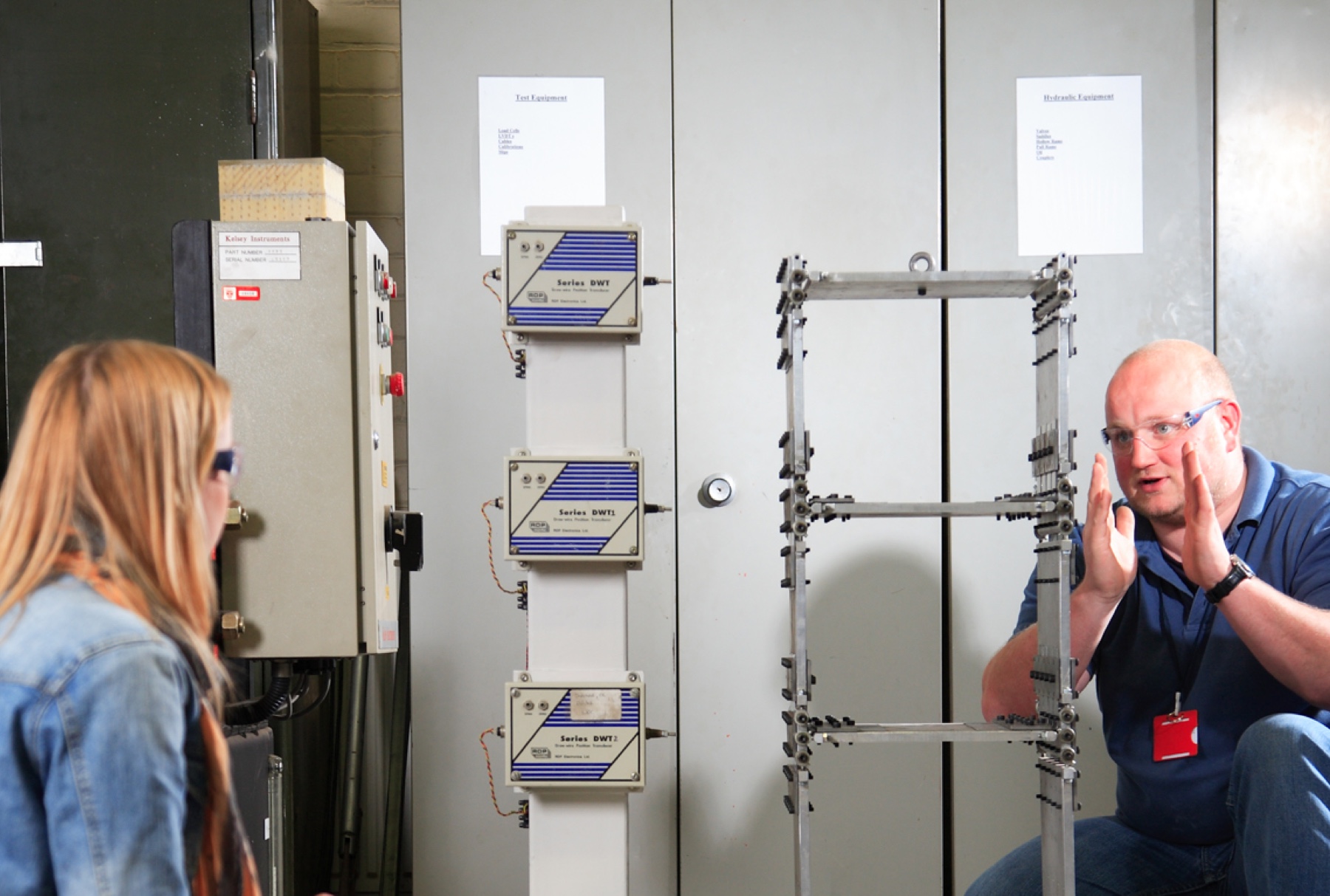Katherine
Civil Engineering: MEng (Hons) graduated 2010
Director and Co-owner, Ed Jeffery Ltd
As well as director and co-owner of the company, my responsibilities are also as a rail consultant analysing rail infrastructure, timetables and performance.
What was your reason for choosing your programme of study at Newcastle University?
At school I enjoyed maths and science. I saw civil engineering as a way of continuing this and including other things that I enjoyed such as problem solving. I also liked the fact that it could lead me to specific jobs, and that if I were to ever want to be a chartered engineer it would stand me in good stead.
Whilst doing A-Levels I had taken part in a “Women in Engineering” week based at Newcastle University which really piqued my interest.
Why did you choose Newcastle University and not another institution?
I chose Newcastle partly due to its reputation as a “red brick” university and its reputation for high graduate employment. I also fell in love with the city of Newcastle – it is such a vibrant city with both great cultural and party opportunities for students.
What did you enjoy most about studying at Newcastle University?
Newcastle had a great atmosphere, both in the department and university as a whole.
How has your programme of study helped you so far in your employment?
Integrated Design was a great module as it taught teamwork alongside the project work itself. Back then, I had no idea at how realistic it was. In the rail industry, I have been in meetings where, in the early stages of design, people have looked on Google Earth to see if (and where) a new loop would be possible. This is no different to what we did in module.
The teamwork element also very much reflects reality – for example, how to deal with splitting work and with some people not pulling their weight. It's how you cope with these things in team environments.
Technical report writing is another invaluable skill which was well practised during the degree.
What attracted you to work for your current employer?
I previously worked for Network Rail, doing similar work to what I now do.
One of my work colleagues left to start up his own consultancy and, when he had more work than he could handle, asked me to join him. I was reluctant at first as it is much riskier than normal employment – no guaranteed income, no sick pay etc – but I decided to do it as it was such an opportunity to be in charge of my own destiny.
What skills have you gained so far in your role?
I see problem solving as the key skill needed for timetable development and performance modelling.
Communication is also key – during project work and then through reports and presentations.
What have been the highlights of your employment so far?
I love how I can really influence decisions in the industry. For example, I was the lead analyst on the work which persuaded the government to change the destination of Crossrail services from Maidenhead to Reading in order to improve performance on the route.
What projects are you involved in at the moment and how are you utilising your skills?
My main project at the moment is working with the Jacobs modelling team, analysing all operational elements of the Transpennine Route Upgrade – a multimillion pound scheme.
Problem solving is key to this to come up with solutions to both timetable and performance issues.
Communication is also key. It doesn’t matter how good the analysis is, if people can’t understand it and its implications, then it won't influence the direction of the project as it needs to.
What support did you receive from Newcastle University in searching for employment?
In my final year, I did a module where I helped out with teaching in schools. There was an interview at the end of the module was an interview. I think the workshops for the interview were most helpful, as they gave me the skills (for example the STAR technique) to go into the world and get a job.
When I used to interview graduates straight out of university, many had obviously had no such training.
What do you hope to achieve in the future?
My long-term goal is to take on employees and expand the business. In an ideal world, we would build up the business before selling it to retire early – we can always dream!
What advice would you give to students considering a degree in your subject? Why should they chose Newcastle? How do you think Newcastle University differs from other universities?
I would really recommend Civil Engineering. The skills you learn are so transferable and make you a prime candidate in so many industries.
Newcastle is an amazing city to do a degree, for the social side as much as the studying.
As a graduate, how would you like to remember the University?
For me, it's all about the friendships I made whilst I was there.
The most memorable bits of the degree are definitely the practicals – surveying around cows, making and then breaking reinforced beams, and of course Grinton Lodge.
